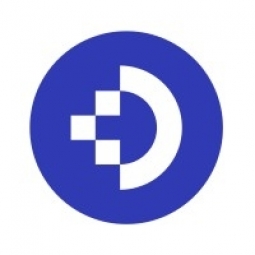Customer Company Size
Mid-size Company
Region
- Europe
Country
- Germany
Product
- DocuWare
- SAP ERP system
- TOBIT email application
- VGCS Content and Dataserver
- Kodak Scan Station 500
Tech Stack
- Document Management System
- ERP System
- Email Archiving
- Barcode Scanning
- Workflow Automation
Implementation Scale
- Enterprise-wide Deployment
Impact Metrics
- Productivity Improvements
- Cost Savings
- Customer Satisfaction
- Waste Reduction
Technology Category
- Application Infrastructure & Middleware - Data Exchange & Integration
- Application Infrastructure & Middleware - Database Management & Storage
- Functional Applications - Enterprise Resource Planning Systems (ERP)
Applicable Industries
- Equipment & Machinery
Applicable Functions
- Sales & Marketing
- Procurement
- Business Operation
Use Cases
- Supply Chain Visibility
- Inventory Management
- Demand Planning & Forecasting
Services
- System Integration
- Software Design & Engineering Services
About The Customer
GOETTFERT is a machinery company based in Buchen, Germany, with subsidiaries in China and the US. The company is one of the leading manufacturers of rheological testing equipment for the plastics and rubber industry. GOETTFERT offers a wide product portfolio with various specifications for diverse applications, tailored to the specific needs of customers. The company focuses on the newest technologies and precision, as well as efficient internal administrative processes. To enhance its SAP ERP system, the company deployed a document management solution by DocuWare.
The Challenge
GOETTFERT, a leading manufacturer of rheological testing equipment for the plastics and rubber industry, was facing challenges with its document management. The company had to deal with a large number of documents such as email, paper documents, drawings, telephone notes, customer correspondence, orders, proposals, order confirmations, shipping slips, and invoices. These documents needed to be assembled, shared, and stored, which was a time-consuming process. The company was looking for a solution to reduce the time and effort spent on document management and improve efficiency.
The Solution
GOETTFERT implemented DocuWare, a document management solution, to enhance its SAP ERP system. The solution was first implemented as a parallel system during the test stage and went live in production mode in January 2014. The company moved completely away from paper-based filing. DocuWare is integrated with SAP via a certified interface VGCS Content and Dataserver. All accounting records sent to either vendors or customers are automatically stored from the ERP System into the central document repository and are then indexed using the SAP data. In addition, all email relevant for order processing is archived with the certified TOBIT interface. A barcode label is assigned to each incoming invoice in the mail room. Then the document gets scanned, stored into the electronic file cabinet and forwarded to the respective department for approval. This launches a workflow: the invoice appears in the electronic inbox of the department head who checks the invoice and places an electronic stamp on it. This stamping automatically sends the invoice to the purchasing department where further verification happens. After the final approval, the invoice is returned to the accounting department which ultimately initiates the payment.
Operational Impact
Quantitative Benefit

Case Study missing?
Start adding your own!
Register with your work email and create a new case study profile for your business.
Related Case Studies.

Case Study
Smart Water Filtration Systems
Before working with Ayla Networks, Ozner was already using cloud connectivity to identify and solve water-filtration system malfunctions as well as to monitor filter cartridges for replacements.But, in June 2015, Ozner executives talked with Ayla about how the company might further improve its water systems with IoT technology. They liked what they heard from Ayla, but the executives needed to be sure that Ayla’s Agile IoT Platform provided the security and reliability Ozner required.

Case Study
IoT enabled Fleet Management with MindSphere
In view of growing competition, Gämmerler had a strong need to remain competitive via process optimization, reliability and gentle handling of printed products, even at highest press speeds. In addition, a digitalization initiative also included developing a key differentiation via data-driven services offers.

Case Study
Predictive Maintenance for Industrial Chillers
For global leaders in the industrial chiller manufacturing, reliability of the entire production process is of the utmost importance. Chillers are refrigeration systems that produce ice water to provide cooling for a process or industrial application. One of those leaders sought a way to respond to asset performance issues, even before they occur. The intelligence to guarantee maximum reliability of cooling devices is embedded (pre-alarming). A pre-alarming phase means that the cooling device still works, but symptoms may appear, telling manufacturers that a failure is likely to occur in the near future. Chillers who are not internet connected at that moment, provide little insight in this pre-alarming phase.

Case Study
Premium Appliance Producer Innovates with Internet of Everything
Sub-Zero faced the largest product launch in the company’s history:It wanted to launch 60 new products as scheduled while simultaneously opening a new “greenfield” production facility, yet still adhering to stringent quality requirements and manage issues from new supply-chain partners. A the same time, it wanted to increase staff productivity time and collaboration while reducing travel and costs.

Case Study
Integration of PLC with IoT for Bosch Rexroth
The application arises from the need to monitor and anticipate the problems of one or more machines managed by a PLC. These problems, often resulting from the accumulation over time of small discrepancies, require, when they occur, ex post technical operations maintenance.

Case Study
Data Gathering Solution for Joy Global
Joy Global's existing business processes required customers to work through an unstable legacy system to collect mass volumes of data. With inadequate processes and tools, field level analytics were not sufficient to properly inform business decisions.







